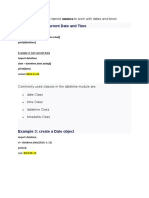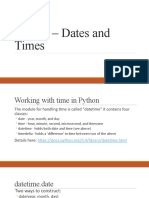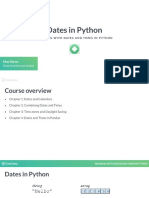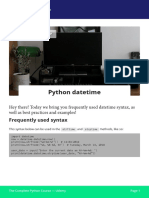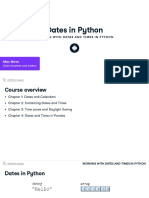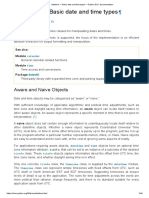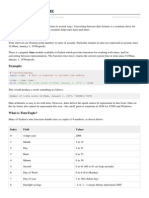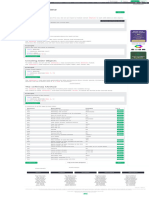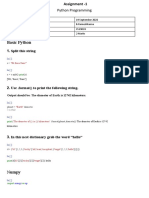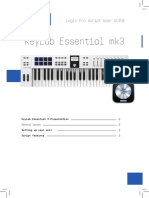0% found this document useful (0 votes)
28 views5 pagesDate Handling Exercises-Solutions
The document provides solutions for exercises related to date and time manipulation in Python using the datetime module. It covers creating and displaying current and specific dates, parsing date strings, performing date arithmetic, checking weekdays and leap years, and handling time zones with the pytz library. Each exercise includes code snippets demonstrating the functionality and usage of various date and time operations.
Uploaded by
Surabhi RastogiCopyright
© © All Rights Reserved
We take content rights seriously. If you suspect this is your content, claim it here.
Available Formats
Download as DOCX, PDF, TXT or read online on Scribd
0% found this document useful (0 votes)
28 views5 pagesDate Handling Exercises-Solutions
The document provides solutions for exercises related to date and time manipulation in Python using the datetime module. It covers creating and displaying current and specific dates, parsing date strings, performing date arithmetic, checking weekdays and leap years, and handling time zones with the pytz library. Each exercise includes code snippets demonstrating the functionality and usage of various date and time operations.
Uploaded by
Surabhi RastogiCopyright
© © All Rights Reserved
We take content rights seriously. If you suspect this is your content, claim it here.
Available Formats
Download as DOCX, PDF, TXT or read online on Scribd
/ 5









